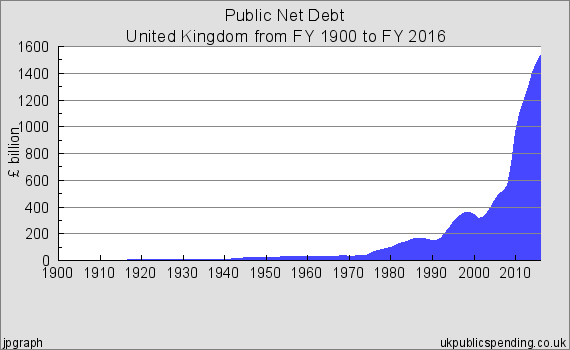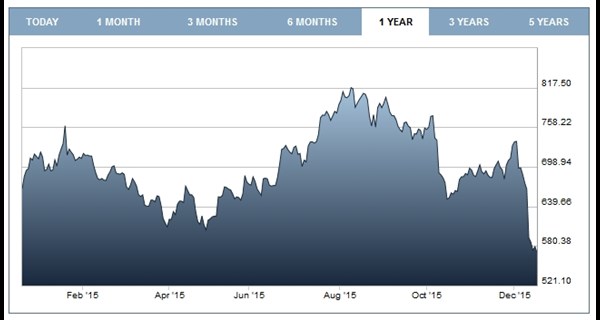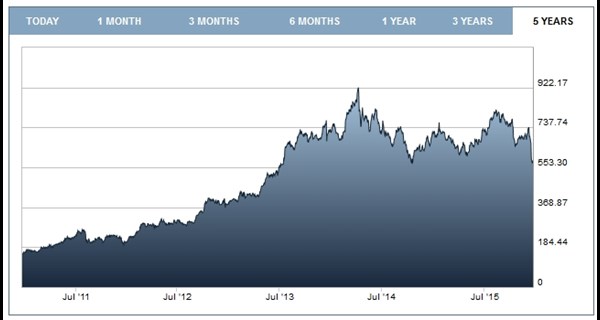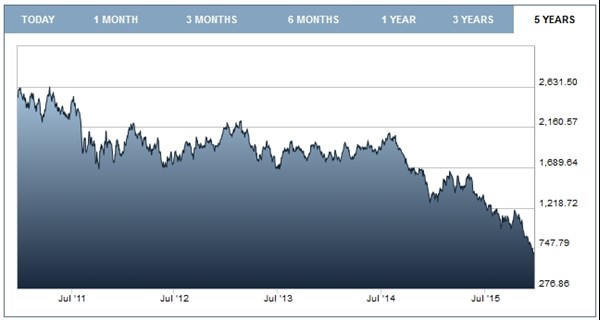Economics - what is it all about?
It's about GDP surely?
Gross Domestic Product (GDP) as a measure is not indicative of anything other than throughput GDP. It doesn't measure things that we really value - well-being, social cohesion, safety, the environment and so on. Instead it measures anything where money changes hands, including natural disasters, crime, car accidents and so on.
GDP ignores volunteering, degradation of the planet's resources and the many other activities that do not include the exchange of money.
President "Bobbie" Kennedy made this point in 1968 - we haven't learnt.
Needless to say some still cling to this somewhat questionable  metric.
metric.
So if it isn't GDP what about productivity?
Productivity - that's what we need!
A recent article by the US National Bureau of Economic Research states "The U.S. has been experiencing a slowdown in measured labor productivity growth since 2004."
The productivity is still high - it just isn't getting higher as fast as it used to. You read that right - It's still growing but not as fast as it was.
The article created flurries of comments on the various forums with most bewailing the drop of "productivity  " without seemingly understanding that it was actually a drop in productivity growth - a completely different matter. Both Galbraith and Schumacher (see links below) have a deal to say about "production".
" without seemingly understanding that it was actually a drop in productivity growth - a completely different matter. Both Galbraith and Schumacher (see links below) have a deal to say about "production".
At this point it might be worth mentioning that other weird metric - the deficit. Listen to the news and you might hear announcements such as:
"Government borrowing totalled £107.7bn in the fiscal year to end-March, just below the target outlined in last month's budget.
George Osborne just met his full-year borrowing target in 2013-14, with the UK deficit falling to the lowest level since the beginning of the financial crisis as economic recovery boosted tax receipts."
Source: The Guardian
That sounds like great news doesn't it? Not perhaps as great as Mr Osborne would like us to believe. Many people would read this as we now only owe £107.7bn. Unfortunately, what it actually means is that our debt went up by £107.7bn but we must take comfort in the fact that it went up by less than it did last year. Bottom line - our debt is still increasing year on year.

Source: http://www.ukpublicspending.co.uk/ 
It gets even more confusing when the deficit is compared to GDP. Remember GDP is just money through the system.
If GDP goes up it's good but if Debt goes up it's bad. So, what are we to make of GDP and Debt going up?
If you are curious where the UK National Debt now stands, you can watch a live update on http://www.nationaldebtclock.co.uk/  or if you are in the US on http://www.usdebtclock.org/
or if you are in the US on http://www.usdebtclock.org/ 
So maybe economics is really just concerned with growth - in any direction?
Is Growth really a sign of success?
It always seemed odd to me that the most common way we measure success is by increased growth. The dominant economic system today is predicated on growth and in particular the growth of share value. We hear cries of woe when growth stalls. Are profits alone not enough? Can businesses keep on growing forever?
A recent article in the Guardian had the headline: Sports Direct shares plunge as sales growth stalls and then stated:
"More than £400m was wiped off the value of Sports Direct as City investors and MPs turned on the company following disappointing financial results and revelations over pay and working conditions unearthed by a Guardian investigation.
Shares in the UK’s biggest sportswear retailer slumped by 11% on Thursday, costing the company’s billionaire founder, Mike Ashley, some £237m."
Source: The Guardian
Let's unpack that a bit. How can value be wiped off any organisation?
The article goes on to explain:
"the retailer’s temporary warehouse workers are subjected to an extraordinary regime of searches and surveillance. … thousands of workers were receiving effective hourly rates of pay below the minimum wage. The company was branded a “scar on British business” by the Institute of Directors … the shadow chancellor, John McDonnell, said: “There’s a basic responsibility that society expects from big business – to not exploit their customers, their staff or the taxpayer.” … staff at Sports Direct’s warehouse are required to go through searches at the end of each shift, for which their time is unpaid, while they also suffer harsh deductions from their wage packets for clocking in for a shift just one minute late…. The practice typically adds another hour and 15 minutes to the working week."
Source: The Guardian
Although, the headline cited sales growth "stalling", nowhere was the supposed slump in growth mentioned except tangentially in phrases such as "worse-than-expected sales performance over recent months". So what actually happened? Below is a graph showing share price for the year. Look carefully and you'll notice that y axis on the graph starts at 521.0 not 0 - starting at 0 it would look quite different.

It looks pretty precipitous, so what could have caused this sudden decline? Could it be the revelations of shoddy treatment of employees that spooked the city?
Let's see what the last 5 years shows:

In the round it all looks like it is heading in the right direction, albeit with a recent (statistically minor) blip. What is noticeable is the precipitous fall in the last month and it is probably the fear that this is the beginning of a long-term trend that has panicked investors. It is however entirely possible that the market had overvalued Sports Direct and it was now settling down to a more regular and stable value of around 550.
So what does a stable company look like?
According to Barclays, BHP Billiton is one of the world's most stable companies, measured by its "implied volatility" - how much the market expects its price to fluctuate. So what does their share value over 5 years look like?

It looks to me like they are definitely going down the pan. So it seems that short term decreases in share value are seen as more important than long-term trends. To be fair we are using newspaper headlines as our guide for what is important, perhaps not the most reliable choice.
In the analysis above, what we have been looking at is share value, which is in essence what the market estimates the business is worth, mostly in terms of Return on Investment ROI or profitability ratio. It says little about how stable the company is, in fact a stable company is often seen as a poor investment. A good investment is a company that keeps growing at a rate greater than inflation. Is that even possible?
I don't think so, simple mathematics tell us that growth cannot continue forever. So why do businesses strive for growth and not stability? The obvious answer is that investors want growth and since businesses need investors, businesses want growth to satisfy the investors. Another, probably more realistic, answer is that this way of thinking is "Conventional Wisdom".
THE CONVENTIONAL WISDOM
The first requirement for an understanding of contemporary economic and social life is a clear view of the relation between events and the ideas which interpret them. For each of these has a life of its own, and much as it may seem a contradiction in terms each is capable for a considerable period of pursuing an independent course.
The reason is not difficult to discover. Economic, like other social life, does not conform to a simple and coherent pattern. On the contrary it often seems incoherent, inchoate, and intellectually frustrating. But one must have an explanation or interpretation of economic behaviour. Neither man's curiosity nor his inherent ego allows him to remain contentedly oblivious to anything that is so close to his life.
Because economic and social phenomena are so forbidding, or at least so seem, and because they yield few hard tests of what exists and what does not, they afford to the individual a luxury not given by physical phenomena. Within a considerable range he is permitted to believe what he pleases, he may hold whatever view of the world he finds most agreeable or otherwise to his taste.
As a consequence, in the interpretation of all social life there is a persistent and never-ending competition between what is relevant and what is merely acceptable. In this competition, while a strategic advantage lies with what exists, all tactical advantage is with the acceptable. Audiences of all kinds most applaud what they like best. And in social comment the test of audience approval, far more than the test of truth, comes to influence comment. The speaker or writer who addresses his audience with the proclaimed intent of telling the hard, shocking facts invariably goes on to expound what the audience most wants to hear.
Just as truth ultimately serves to create a consensus, so in the short run does acceptability. Ideas come to be organized around what the community as a whole or particular audiences find acceptable. And as the laboratory worker devotes himself to discovering scientific verities, so the ghost writer and the public relations man concern themselves with identifying the acceptable. If their clients are rewarded with applause, these artisans are qualified in their craft. If not they have failed. However, by sampling audience reaction in advance, or by pretesting speeches, articles, and other communications, the risk of failure can now be greatly minimized.
Numerous factors contribute to the acceptability of ideas. To a very large extent, of course, we associate truth with convenience - with what most closely accords with self-interest and individual well-being or promises best to avoid awkward effort or unwelcome dislocation of life. .... Therefore we adhere, as though to a raft, to those ideas which represent our understanding. This is a prime manifestation of vested interest. For a vested interest in understanding is more preciously guarded than any other treasure. It is why men react, not infrequently with something akin to religious passion, to the defence of what they have so laboriously learned. Familiarity may breed contempt in some areas of human behaviour, but in the field of social ideas it is the touchstone of acceptability.
Because familiarity is such an important test of acceptability, the acceptable ideas have great stability. They are highly predictable. It will be convenient to have a name for the ideas which are esteemed at any time for their acceptability, and it should be a term that emphasized this predictability. I shall refer to those ideas henceforth as the conventional wisdom.
Source: The Affluent Society by J. K. GalbraithFirst published in 1958
So don't trust Conventional Wisdom.
The understanding that the period we are in (and probably now coming out of) is an aberration, is also not new.
"Growth, growth, growth -- that's all we've known . . . World automobile production is doubling every 10 years; human population growth is like nothing that has happened in all of geologic history. The world will only tolerate so many doublings of anything -- whether it's power plants or grasshoppers."
Source: M. King Hubbert1975
Incidentally, Hubbert was also the man that first coined the term "Peak Oil  " back in 1953, though the concept pre-dates him.
" back in 1953, though the concept pre-dates him.
Some economists will still argue that continual growth is possible because new money is created all the time. They are of course not taking into account the associated consumption of resources and the limit to the amount we human beings can "consume"; It has already been commented that we have reached "peak stuff".
“In the west, we have probably hit peak stuff. We talk about peak oil. I’d say we’ve hit peak red meat, peak sugar, peak stuff… peak home furnishings.”
Source: Steve Howard, head of Ikea’s sustainability unit
So it seems the practicalities of continual growth are a limiting factor - at least in the developed world - but what about this money for nothing?
New money is created out of thin air? Really? How?
Amazing though this sounds, it is true. "Where does this money come from? is perhaps not the most common question people ask themselves as they stand at the supermarket checkout. The simple answer is "from the bank". The actual answer is more intriguing.
Money is debt - or credit depending on which side of the balance sheet you are concerned with.
Whenever anyone takes out a bank loan, the lending bank creates money as Credit. To the borrower it is a Debt which must be repaid - with interest. The word "Credit" has an interesting etymology  - it is all about our credulity.
- it is all about our credulity.
97% of the money in the UK was created by banks and exists only on the balance sheets of the banks. The more banks lend, the more money there is. It doesn't take a genius to see that banks can't keep lending forever and therefore we can't keep creating more money - that way lies madness.
In the video below Professor Dirk Bezemer  at the University of Groningen and Michael Kumhof
at the University of Groningen and Michael Kumhof  , an IMF Economist explain the process - "Banks create money out of thin air".
, an IMF Economist explain the process - "Banks create money out of thin air".
For a fuller explanation - 97% Owned  is an excellent 2012 documentary, which explores this problem and handily goes a long way to explaining our current economics generally.
is an excellent 2012 documentary, which explores this problem and handily goes a long way to explaining our current economics generally.
Or watch the video below (it's over 2 hours long but very educational):
“the essence of the contemporary monetary system is the creation of money, out of nothing, by private banks’ often foolish lending”
Source: Martin Wolf, previously of the Independent Commission on Banking - In the Financial Times.
By creating money in this way, banks have increased the amount of money in the economy by an average of 11.5% a year over the last 40 years.
If you have trouble sleeping and also the enthusiasm, the Bank of England explain the process in a 2014 bulletin  .
.
In the medical world continual growth is recognised as cancer and if left unchecked results in death! In the economic world continual growth is seen as a sign of success - something is clearly wrong.
Are there any other economic models?
Yes, in fact depending on who you ask, there are many and the more you look the more there are  .
.
Perhaps the strongest contender for an alternative, is the Steady State model as espoused by the Center for the Advancement of the Steady State Economy ( CASSE  )
)
CASSE are not the only serious (minded) critics of the status quo. J K Galbraith  has always swum upstream and now there seem to be more, and more vocal critics - check out Tomáš Sedláček, Dan O'Neill and Tim Jackson on the Community page - Ha-Joon Chang
has always swum upstream and now there seem to be more, and more vocal critics - check out Tomáš Sedláček, Dan O'Neill and Tim Jackson on the Community page - Ha-Joon Chang  is another and we should not forget E F Schumacher
is another and we should not forget E F Schumacher  .
.
"Economists are not some innocent technicians who did a decent job within the narrow confines of their expertise until they were collectively wrong-footed by a once-in-a-century disaster that no one could have predicted."
Source: Ha-Joon Chang - 23 Things They Don't Tell You About Capitalism
Other players:
The Schwartz Center for Economic Policy Analysis 
As far as the practicalities of how any new economic model might work, there are two other pillars to consider - The Circular Economy and Self-Management.
It's going to happen - the only question is when. Hopefully while we still have the resources to survive at all.